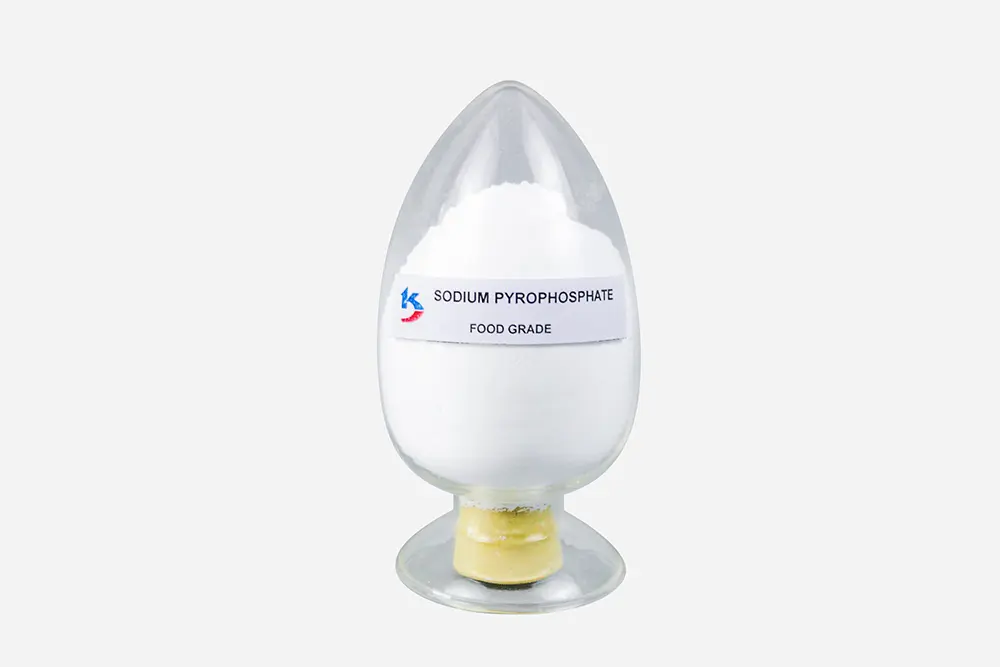Disodium Phosphate: Understanding its Composition and Potential Impacts
2023-09-04
Introduction:
In the world of food additives, disodium phosphate is a commonly used ingredient. This compound, known by various names including disodium hydrogen phosphate, dibasic sodium phosphate, sodium hydrogen phosphate, and sodium phosphate dibasic anhydrous, serves multiple purposes in the food industry. However, questions often arise regarding its safety and potential adverse effects. In this article, we explore the composition of disodium phosphate, its role in food products, and the latest knowledge surrounding its safety.
Understanding Disodium Phosphate:
Disodium phosphate has the chemical formula Na2HPO4 and consists of two sodium cations (Na+) and one phosphate anion (HPO42-). It exists as a white, odorless, and crystalline powder that is highly soluble in water. Its versatility and multifunctionality make it a popular ingredient in food processing and preservation.
Role in Food Products:
pH Stabilizer: Disodium phosphate is commonly used in the food industry as a pH stabilizer. It helps control acidity or alkalinity levels by acting as a buffering agent, maintaining the desired pH range. This property is particularly important in foods that undergo processing and preservation where consistent pH levels contribute to taste, texture, and shelf life.
Emulsifier and Texturizing Agent: Disodium phosphate acts as an emulsifier and texturizing agent in various processed food products. By promoting the mixing and dispersion of immiscible substances, such as oil and water, it helps create stable emulsions in products like salad dressings, processed cheeses, and baked goods. It also contributes to improving the texture, consistency, and overall sensory experience of foods like processed meats, desserts, and powdered beverages.
Nutritional Supplementation: In some instances, disodium phosphate is used as a source of dietary phosphorus and sodium supplementation. Phosphorus is an essential mineral that plays a crucial role in various physiological functions, particularly in bone health and energy metabolism. Including disodium phosphate in foods can help ensure an adequate intake of these nutrients.
Safety Considerations:
Regulatory Approval: Disodium phosphate is classified as a generally recognized as safe (GRAS) ingredient by regulatory bodies such as the U.S. Food and Drug Administration (FDA) and the European Food Safety Authority (EFSA) when used within specified limits in food products. These regulatory bodies regularly evaluate the safety of food additives and establish acceptable daily intake (ADI) levels based on scientific research and toxicological assessments.
Potential Health Effects: While disodium phosphate is considered safe for consumption at the levels permitted in food products, excessive intake of phosphorus through various sources, including food additives, could potentially have adverse health effects. High phosphorus intake, especially for individuals with underlying kidney conditions, may disrupt mineral balance, leading to issues such as impaired kidney function, bone loss, and cardiovascular concerns. It is important to maintain a balanced diet and consider overall phosphorus intake from various sources.
Individual Tolerance and Dietary Diversity: As with any food ingredient, individual tolerance and sensitivity can vary. Some individuals may exhibit allergic reactions or digestive discomfort in response to disodium phosphate or other phosphates. It is essential to be mindful of personal reactions and consult a healthcare professional if any concerns arise. Additionally, a diverse and balanced diet that includes a variety of nutrient sources can help optimize health and minimize overexposure to specific additives.
Conclusion:
Disodium phosphate, also referred to as disodium hydrogen phosphate, dibasic sodium phosphate, sodium hydrogen phosphate, or sodium phosphate dibasic anhydrous, is a multifunctional food additive used primarily as a pH stabilizer and emulsifier in processed foods. While regulatory bodies have deemed it safe for consumption within approved limits, it is important to maintain an overall balanced diet and consider individual factors when evaluating dietary choices. As with all food additives, moderation and awareness are key. By staying informed and making conscious choices, individuals can ensure the enjoyment of safe and varied food products.


